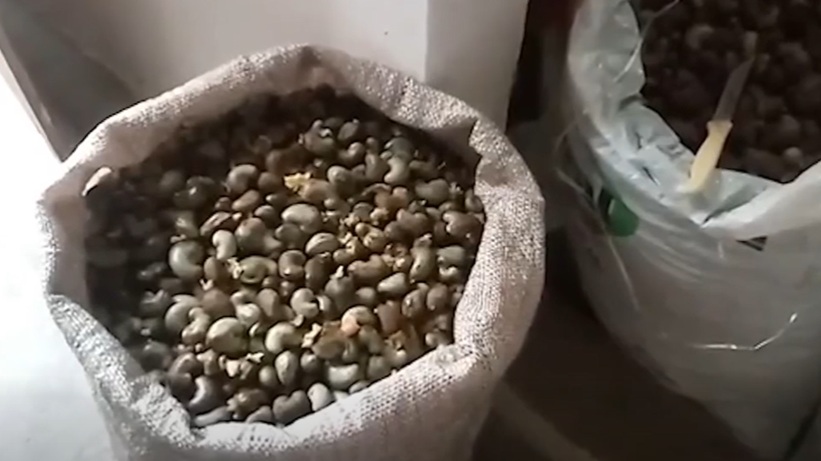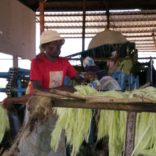Mozambique: Coffee farming already involves 1,500 families in Gorongosa
Cashew smuggling from Cabo Delgado to Tanzania hits Mozambique with €1.5m in losses – Watch

Screengrab: SixNews
Mozambican authorities estimated on Thursday that 7,600 tonnes of cashew nuts, a key crop, were smuggled from Cabo Delgado to Tanzania in the 2024/2025 season, causing losses of €1.5 million to the state.
“The key issue here is that, normally, these nuts are not taxed,” António Jone, provincial delegate of the Mozambique Oilseeds Institute (IAM) in Cabo Delgado, told journalists.
The state, Jone explained, loses approximately 1,200 meticais (€16) for every 80 kilos of cashew nuts (a sack) smuggled, estimating total fiscal loss at 114 million meticais (€1.5 million) in the last campaign in Cabo Delgado.
The Secretary of State of Cabo Delgado, Fernando Bemane de Sousa, admitted that smuggling was facilitated by the porous border with Tanzania, appealing for the population’s collaboration in combating the practice: “We have a very open border and people do leave.”
“This fight needs to involve each and every one of us reporting people who flee. It is illegal for anyone to leave one country for another without any document proving their status,” the official warned.
Mozambique plans to invest $374 million (€322 million) to develop the cashew sector and increase annual production from the current 158,000 tonnes to 689,000 tonnes by 2034, the government announced on 24 October.
Mozambique’s cashew nut exports continue to grow, reaching US$38.7 million (€33 million) in the first quarter of this year, leading in foreign sales among designated “traditional products,” according to data from the Bank of Mozambique.
According to the Ministry of Agriculture, cashew nut production in Mozambique reached over 200,000 tonnes annually 50 years ago, during the colonial period, and until the mid-1970s, Mozambique was the world’s second-largest cashew producer (210,000 tonnes processed in 1973), behind only India, which at that time, and still today, buys a large part of that production.
After Mozambique’s independence on 25 June 1975, production fell by less than 10%, to around 15,000–20,000 tonnes annually, but the figure has been growing steadily, and in the 2024/2025 campaign it stood out among the largest producers, maintaining its seventh place.













Leave a Reply
Be the First to Comment!
You must be logged in to post a comment.
You must be logged in to post a comment.